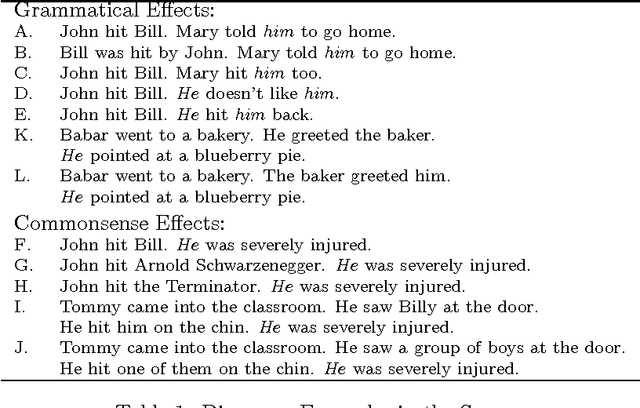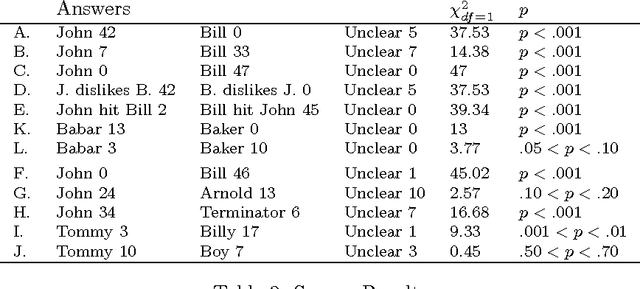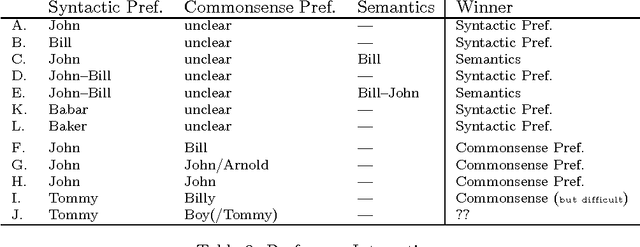Discourse Preferences in Dynamic Logic
Paper and Code
Jul 16, 1997



In order to enrich dynamic semantic theories with a `pragmatic' capacity, we combine dynamic and nonmonotonic (preferential) logics in a modal logic setting. We extend a fragment of Van Benthem and De Rijke's dynamic modal logic with additional preferential operators in the underlying static logic, which enables us to define defeasible (pragmatic) entailments over a given piece of discourse. We will show how this setting can be used for a dynamic logical analysis of preferential resolutions of ambiguous pronouns in discourse.
* To appear in Van Glabbeek, R. et al. eds., a collection of papers
from the Fourth CSLI Workshop in Logic, Language, and Computation, CSLI
Publications. (This is a revised version of the paper titled "Preferences in
Dynamic Semantics" in the Proceedings of the Tenth Amsterdam Colloquium,
1995, pages 445-464.)
 Add to Chrome
Add to Chrome Add to Firefox
Add to Firefox Add to Edge
Add to Edge